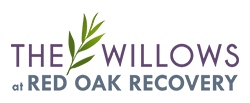If you’ve been drinking regularly and are thinking about quitting, you may wonder if it’s safe to stop drinking alcohol cold turkey. The idea of waking up one day and deciding to quit might sound strong or even inspiring—but for some people, stopping alcohol suddenly can be dangerous. In some cases, it can even be life-threatening.
Knowing what to expect when you quit drinking is important. Understanding your body’s reaction to sudden alcohol cessation, the symptoms of withdrawal, and the safest ways to detox can help you make the best choice for your health.
What happens to your body during sudden alcohol cessation
Alcohol affects the central nervous system. It slows down brain activity and relaxes the body, which is why people often drink to relieve stress, reduce anxiety, or fall asleep. But when you drink heavily and consistently, your body adjusts to having alcohol in your system. Your brain works harder to stay alert and balanced.
When you suddenly stop drinking, your brain doesn’t get the alcohol it’s used to, and this creates a rebound effect. Your nervous system becomes overactive. This can cause a wide range of physical and emotional symptoms, known as alcohol withdrawal effects.
In mild cases, this can feel like a bad hangover. In more serious cases, your body can go into shock. These reactions can start within hours of your last drink and may become worse before they get better. If your body is dependent on alcohol, quitting cold turkey can trigger symptoms that are not just uncomfortable but dangerous.
Alcohol withdrawal timeline and symptoms
Alcohol withdrawal symptoms can begin as early as six hours after your last drink. How long and how severe your symptoms are depend on many factors, like how much you drank, how long you’ve been drinking, your overall health, and whether you’ve gone through withdrawal before.
A general timeline of what to expect when you stop drinking alcohol
Six to 12 hours after your last drink:
- Anxiety or restlessness
- Shaking hands or body tremors
- Headaches
- Sweating
- Fast heart rate
- Nausea
12 to 24 hours:
- Mood swings or irritability
- Trouble sleeping
- More intense shaking
- Sensitivity to light or sound
24 to 72 hours:
- High blood pressure
- Fever
- Confusion or disorientation
- Hallucinations (seeing or hearing things that aren’t there)
- Seizures
- Delirium tremens (DTs), which is a life-threatening medical emergency
Three to seven days:
- Lingering anxiety
- Difficulty sleeping
- Low energy
- Ongoing cravings
After the first week, most physical symptoms fade, but emotional symptoms like anxiety, depression, and insomnia can last for weeks or even months. This period is called post-acute withdrawal syndrome (PAWS), and it’s one reason relapse can happen without proper support.
The dangers of severe withdrawal
For some people, alcohol withdrawal isn’t just uncomfortable—it can be life-threatening. The most serious risks of quitting alcohol cold turkey include seizures and delirium tremens, also known as DTs.
Seizures usually occur within the first 24 to 48 hours after stopping drinking. They are more likely in people who have been heavy drinkers for a long time or have gone through withdrawal before. These seizures can be sudden, intense, and can lead to serious injury or medical complications.
Delirium tremens is a medical emergency. It usually happens between 48 and 72 hours after the last drink, and can last up to five days. Symptoms may include:
- Extreme confusion
- Hallucinations
- High blood pressure
- Rapid heartbeat
- Fever
- Shaking
- Agitation or aggression
Without treatment, DTs can cause heart problems, brain damage, and even death. That’s why it’s so important to talk to a medical professional before trying to quit drinking on your own, especially if you’ve been drinking heavily or for a long time
Safe ways to quit drinking: Medical detox vs. tapering explained
If you’re considering stopping alcohol, it’s important to figure out the safest way to do it. For many people, the best and safest option is medical detox. This means quitting alcohol under the care of doctors and nurses who can monitor your health, manage withdrawal symptoms, and provide emergency care if needed.
You should seek medical detox if you:
- Drink daily or heavily
- Have experienced withdrawal symptoms before
- Have a history of seizures, DTs, or other medical problems
- Are pregnant
- Have co-occurring mental health conditions
If your alcohol use is mild or you haven’t developed physical dependence, your provider may suggest tapering instead. This means slowly reducing the amount of alcohol you drink over time to avoid triggering withdrawal. However, tapering should still be done under medical supervision. Trying to wean off alcohol on your own can be unpredictable and may not protect you from withdrawal symptoms.
Knowing how to wean off alcohol safely requires expert guidance. Whether you live in North Carolina or elsewhere, it’s worth speaking with a licensed addiction counselor or treatment center near you to make a plan that works for you.
Safe detox protocols and aftercare
Medical detox is often the first step in treating alcohol use disorder. A safe detox plan typically involves:
- 24/7 supervision by medical professionals
- Use of medications like benzodiazepines to prevent seizures and reduce symptoms
- IV fluids to stay hydrated
- Nutritional support
- Psychological support and monitoring
Once detox is complete, continuing care is essential. Detox clears alcohol from your body, but it doesn’t address the emotional or psychological side of addiction. That’s where therapy and aftercare come in.
At The Willows at Red Oak Recovery®, our alcohol addiction treatment program includes:
- Individual and group counseling
- Trauma-informed care
- Holistic and experiential therapies
- Nutritional counseling
- Dual diagnosis support for mental health conditions
Long-term recovery is not about willpower—it’s about healing the root causes of addiction and building a new way of living. Our North Carolina facility offers a warm, supportive environment for women ages 18–30 who are ready to make lasting change. Learn more about our alcohol addiction treatment program.
Support resources and relapse prevention
After detox and treatment, ongoing support helps you stay strong in your recovery. Here are a few tools and resources that can help prevent relapse:
- Therapy: Continuing counseling can help you explore emotional triggers, strengthen coping skills, and stay focused on your goals.
- Peer support groups: Programs like Alcoholics Anonymous (AA) or SMART Recovery provide a sense of connection and accountability.
- Aftercare planning: A good aftercare plan includes scheduled therapy sessions, support groups, sober living arrangements, and relapse prevention strategies.
- Lifestyle changes: Regular sleep, exercise, healthy meals, and stress management play a big role in staying sober.
- Know your triggers: Understanding what leads you to drink—and planning how to handle those moments—can reduce your risk of relapse.
- Stay connected: Isolation can be a major risk factor for relapse. Stay in touch with your support network, whether that’s family, friends, or other women in recovery.
Recovery is not always easy, but it is always possible. You don’t have to figure everything out alone. Whether you’re starting your journey or returning after a relapse, reaching out for help is a powerful act of self-love.
Ready to begin recovery? Call The Willows at Red Oak Recovery® for alcohol addiction treatment and support
Stopping alcohol cold turkey can be dangerous, especially for people who are physically dependent on alcohol. If you’ve been drinking heavily or regularly, talk to a medical professional before quitting. Safe, supportive detox is available—and so is long-term care that meets your emotional and physical needs.
At The Willows at Red Oak Recovery®, we’re here to walk beside you through every step of recovery. If you’re a woman between the ages of 18 and 30 and you’re ready to take your life back from alcohol, our compassionate team is ready to help. Call 828.518.6941 or reach out online today. You are not alone. Healing is possible. And your journey starts with one brave step.




